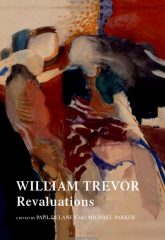
Professor Michael ParkerMichael works primarily as a freelance writer and tutor. He has specialist interests in Modern and Contemporary Irish Literature, Twentieth Century Poetry, Postcolonial Literatures and Polish Literature in Translation, and their historical contexts.

Featured Publications
Lectures and Affiliations
Michael Parker regularly contributes to academic and non-academic events in the UK and worldwide, delivering lectures, presentations and conference papers. He is currently employed as a Tutor by Oxford University’s Department of Continuing Education and in July 2016 was appointed Visiting Professor at Oxford Brookes University.
Extract from Michael Parker’s contribution to a British Academy Public Event in December 2012, examining Czeslaw Milosz’s influence on Heaney from the early 1980s onwards. Filmed by Jude Parker.
Latest from the Blog

Conference: ‘Remembering Seamus Heaney’
Over the weekend of 27-28 April 2024, the University of Notre Dame held a commemoration of the work of Seamus Heaney in Kylemore, Co. Galway. Hosted by Professors Clíona Ni Ríordáin and Declan Kiberd, it included outstanding contributions by academics based in Ireland, Britain, America, Italy, Poland, Croatia and New Zealand. Among the extensive range … Continued

Seamus Heaney and the Classics
Ten years ago in September 2013, the Irish Literary Society approached me to put together a presentation to celebrate the life and work of Seamus Heaney, their then President, whose passing on 30 August 2013 was such a loss to family, friends and his many admirers. To mark the 10th anniversary of his passing, the … Continued

Seamus Heaney Aeneid Book VI Colloquium University of Geneva
It was a great experience in late May being able to attend a two-day ‘live’ colloquium on Seamus Heaney’s translation of Virgil’s Aeneid Book VI, first published in 2016. Organised by Rachel Falconer, Damien Nelis and Stephen Harrison, and hosted by the University of Geneva, it was an international gathering, bringing together classicists and Heaney … Continued

